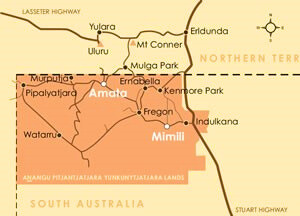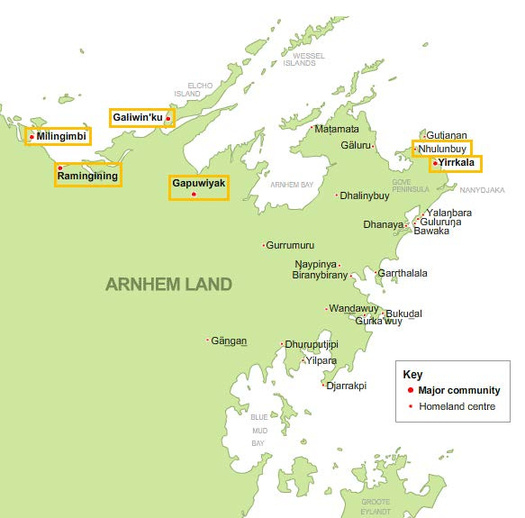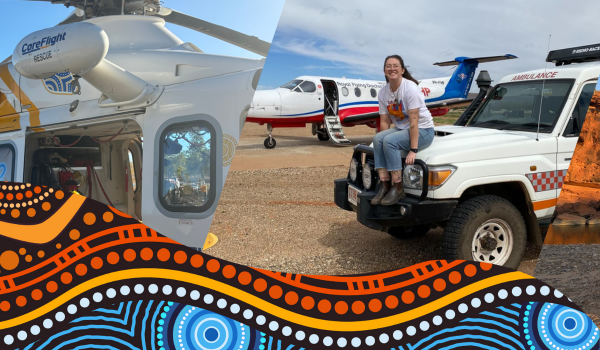Are you a remote area nurse (RAN), or perhaps a Registered Nurse or Midwife aspiring to be one? More and more nurses and midwives are seeking to apply their expertise to some of Australia’s most remote locations, as not only are RANs sought after, but are highly regarded in the profession.
However, it’s important that remote area nurses keep their qualifications and certifications up to date. Working in isolated low-resource environments requires certain skillsets, capabilities, and levels of autonomy. We’ve put together the 7 best-practice courses RANs should consider when planning to go work in remote communities.
Use this list to check-off what you need to stay RAN-ready or use it as a starting point in your transition to becoming a remote area nurse.
Looking for great educational and financial support for your RAN journey? Affinity Nursing provides a handy Remote Package that helps cover your mandatory certification costs.
Skip to section:
1. Remote Emergency Care (REC)
It’s vital to have the knowledge and skills on how to deliver emergency care in a remote context.
While out in community, you will need to be able to respond with confidence to emergency presentations and situations that take on new meaning when isolated.
This course also prepares you for scenarios where patients may need to be prepared for retrieval or transferal.
2. Immunisation
Having authorisation to possess and administer vaccines without a medical order is critical when working in remote clinics, where there may not be medical staff present.
“Understanding Vaccines and the National Immunisation Program” (HESA accredited) aims to educate and certify registered nurses with knowledge and skills to competently deliver safe immunisation service by:
-
- introducing the learner to comprehensive information on the theoretical and practical components of immunisation
- guiding the learner to utilise the relevant resources that support best practice when delivering an immunisation service
This module is a comprehensive online education program that has gained national accreditation. We recommend this course based on its national recognition & acceptance, educative quality, and cost assessment.
If you do have another immunisation certification, please speak to our team and we can advise you which states your course is recognised in and where your contract options exist through Affinity.
3. Pharmacotherapeutics
When managing presentations that range from simple to complex, remote area nurses will need to know how to safely manage medicines autonomously.
Every patient is different, especially those in remote communities and those with Indigenous backgrounds.
Essential knowledge of pharmacology and therapeutics allows you to make more informed and safe decisions when it comes to drug selection, dosage, and administration.


APY Lands in SA (left). North-East Arnhem Land in the NT (right).
4. Maternity Emergency Care (MEC)
Maternity care is vital out in Australia’s most remote communities, which is why this skill is highly sought after for remote area nurses.
This course provides you with the ability to provide emergency care for expectant mothers and newborns in remote areas.
Some times, you won’t have a dedicated midwife available in your isolated town or community, which is why having knowledge of Maternity Emergency Care is extremely important as a remote area nurse.
This course covers the spectrum of pregnancy, birthing, and postnatal emergency care.
5. Manual 4-Wheel-Drive Training
You don’t get your usual ambulances out in the bush. The ambulances you see traversing the dirt tracks are 4WD, and for good reason. To access some remote communities and to navigate throughout the region, you will eventually find yourself off-road.
This means you will need to know how to drive manual, too. Having this training ensures you are confident in operating larger vehicles and can transport patients over challenging terrain.
Chances are, you could get bogged as well! Knowing how to look after your trusty vehicle can be as important as knowing how to look after your patient when on the road.
6. Paediatric Advanced Life Support (PALS)
You will also need to be able to apply essential emergency care and be able to critically manage children in low-resource settings.
Paediatric Advanced Life Support ensures you have the knowledge around the causes of cardiac arrest, basic and advanced airway management/ventilation, defibrillation management and post-resuscitation care.
7. Advanced Life Support (ALS)
This course provides nurses the necessary knowledge and skills to competently provide both Basic Life Support (BLS) and Advanced Life Support to patients in the event of a life-threatening emergency.
Similar to PALS, ALS covers education on airway management, safe use of a defibrillator, rhythm recognition, electrical therapy, pharmacology, intraosseous insertion and management, communicating effectively in an emergency, and post-resuscitation care.
Got everything you need to be the best RAN out there? Your success as a remote area nurse depends on your qualifications and certifications remaining current, so make sure you diligently keep track of what you need to refresh every now and again.
And if you’re after that dedicated educational support—whether as an existing RAN or a transitioning nurse or midwife—be sure to register with Affinity and ask about our specialised RAN Package!







